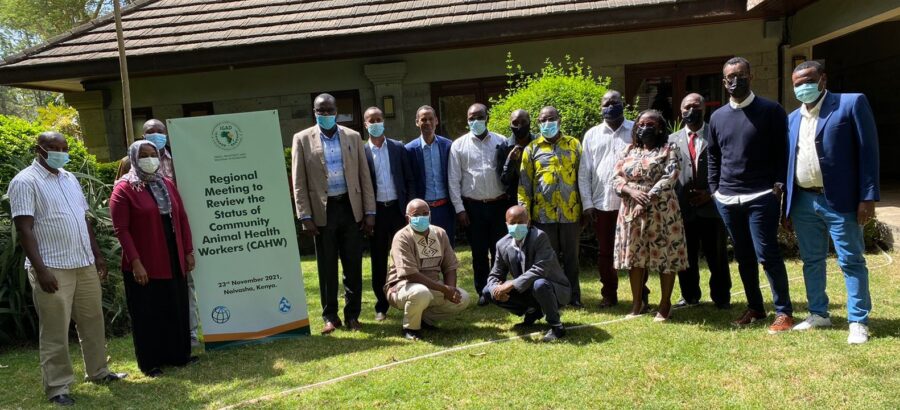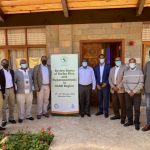In the IGAD region, countries such as Ethiopia, Sudan, South Sudan, Somalia, Djibouti and Uganda recognize the services of CAHW particularly in pastoralist setting, where we do not have adequate professionals, while Kenya operates through community disease reporters (CDR)/ para-veterinarian with more elaborate training. Several localized studies on CAHW’s participation and role in animal health service delivery have concluded that the approach has offered viable alternatives to the resource-constrained (public and private sector human and financial resources) and poorly functioning veterinary services in vast pastoral communities.
A survey questionnaire was developed by IGAD Centre for Pastoral Areas and Livestock Development (ICPALD) administered by trained enumerators from four Member States (Kenya, Ethiopia, Uganda and South Sudan) in order to review the regional status of CAHW/CDR in terms of service delivery and support received to enhance their performance. Feedback was received, analyzed and a draft report developed by ICPALD that required further synthesis and validation by national regulatory authorities.
A one-day meeting was convened on 23rd November 2021 in Naivasha, Kenya in order to validate and enriched the report findings as well as agree on the way forward to further improve the CAHW/CDR services. The following recommendations were made to tackle the challenges both from national and regional levels:
- Nationally standardized training curriculum: national veterinary services and regulatory bodies should support the review and development of CAHW competency and curriculum guidelines that is standardized and operationalized across actors and the region,
- One health: veterinary regulatory authorities and other stakeholders should explore supportive policy framework that strengthen collaboration among CAHWs/CDR, community health volunteers and local environmental champions in order to exercise one-health approach at local/community level,
- Harmonized training curriculum for the region: because of cross-border mobility of pastoralists, CAHW/CDR services have a regional dimension. Thus, it is important to standardize/ harmonize training of CAHWs across IGAD Member States for effective management of transboundary animal disease (TADs) in terms of epidemio-surveillance and vaccination among others,
- CAHW/CDR policy and legal frameworks: In countries where legal and policy framework is not well articulated, it is important to work on these, including code of ethics for CAHW/CDR in order to enhance their recognition and clearly define their roles in the context they are allowed to operate,
- Selection of trainee: At entry to CAHW/CDR training it is important to consider future career development by considering young and relatively educated members of the community,
- CAHW/CDR associations: Supporting formation of CAHW/CDR associations helps in both service quality control and tackling counterfeits.
Acknowledgement: ICPALD expresses appreciation to the World Bank Group for financing this activity through IGAD RPLRP project






